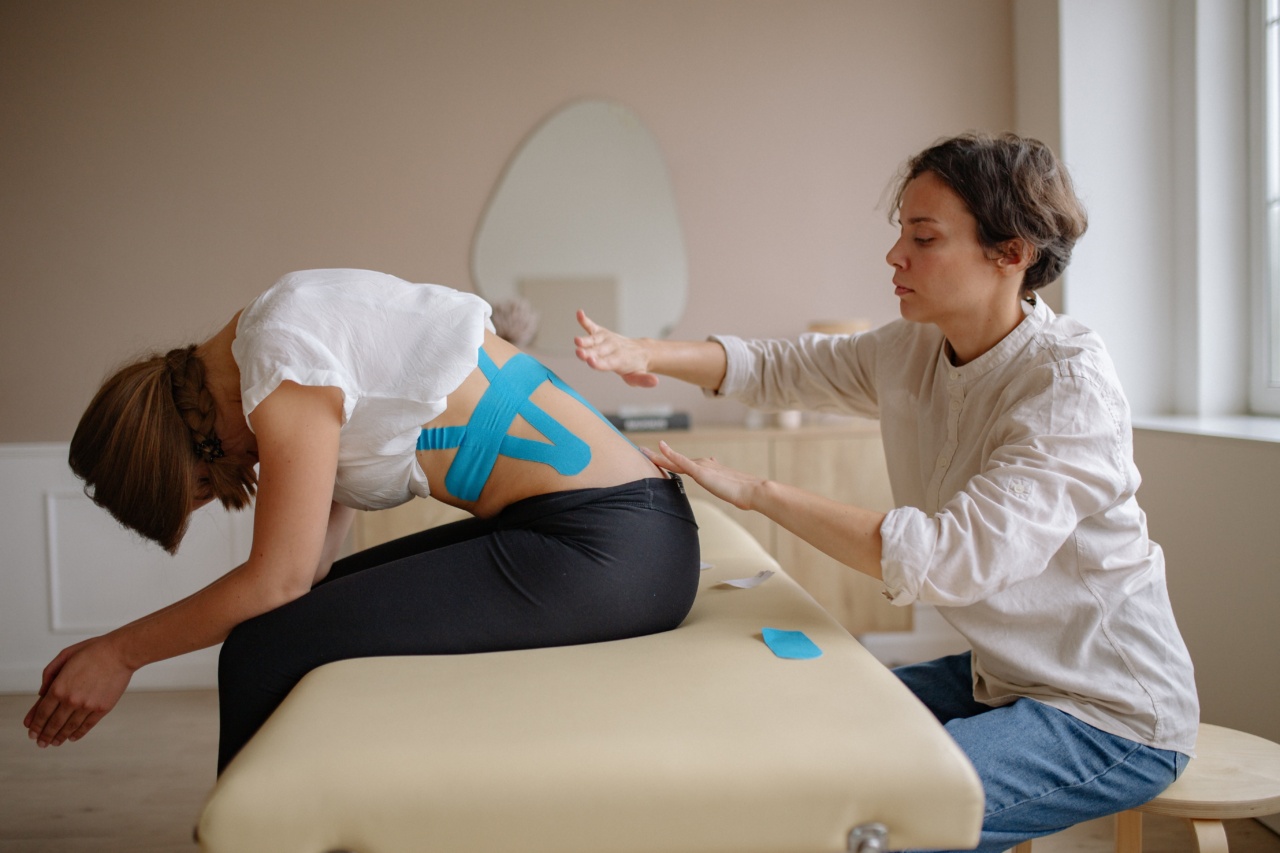Physiotherapy is a branch of healthcare that focuses on helping individuals improve their physical function and mobility.
It involves the assessment, diagnosis, and treatment of various conditions that affect the musculoskeletal, cardiovascular, and respiratory systems. While physiotherapy is beneficial for people of all ages and genders, this article will specifically explore the effective physiotherapy techniques that are tailored to meet the unique needs and challenges faced by women.
Common Conditions in Women
Women often experience certain health issues that are unique to their gender. Some of the common conditions that physiotherapy can effectively manage and treat in women include:.
Pelvic Floor Dysfunction
The pelvic floor muscles in women play a vital role in core stability, bladder and bowel control, and sexual function.
Weakness or dysfunction in these muscles can lead to issues such as urinary incontinence, pelvic organ prolapse, or chronic pelvic pain. Physiotherapy interventions such as pelvic floor muscle exercises, biofeedback, and electrical stimulation are highly effective in improving these conditions and enhancing the overall quality of life for women.
Pregnancy-Related Issues
Pregnancy and childbirth can put significant strain on a woman’s body, leading to various musculoskeletal problems.
Physiotherapy during pregnancy can help alleviate issues such as back and pelvic pain, diastasis recti (abdominal muscle separation), and postural imbalances. Therapists use techniques such as manual therapy, tailored exercises, and ergonomic advice to support women throughout their pregnancy journey and aid in a smoother recovery postpartum.
Postpartum Rehabilitation
After giving birth, women undergo significant physical and hormonal changes. Physiotherapy plays a crucial role in postpartum rehabilitation by addressing concerns such as weakened pelvic floor muscles, diastasis recti, and postural issues.
Rehabilitation programs focus on strengthening the core, improving overall body strength, and promoting optimal functional recovery. This helps women regain their pre-pregnancy strength and prevent long-term complications.
Osteoporosis and Women’s Health
Osteoporosis is a condition characterized by low bone density, primarily affecting women after menopause.
Physiotherapy plays a vital role in managing osteoporosis by designing safe and effective exercise programs that improve bone strength, balance, and reduce the risk of falls and fractures. Therapists also provide valuable education on nutrition, lifestyle modifications, and assistive devices to promote overall bone health in women.
Pre- and Post-Surgery Rehabilitation
Women often undergo various surgeries such as mastectomy, hysterectomy, or joint replacement, which require specialized rehabilitation.
Physiotherapy interventions before surgery, known as prehabilitation, can help improve overall strength, mobility, and optimize post-surgery outcomes. Post-surgery rehabilitation focuses on reducing pain, restoring function, and enhancing the healing process. Physiotherapists use a combination of manual therapy, therapeutic exercises, and modalities to aid in a successful recovery.
Women’s Health and Sports Injuries
Physical activity and sports participation provide numerous health benefits for women. However, female athletes may face specific musculoskeletal issues and injuries.
Physiotherapy plays a crucial role in the prevention, assessment, and management of sports-related conditions such as ACL tears, stress fractures, and shoulder instability. Therapists develop personalized exercise programs, provide athletic taping, and offer guidance on injury prevention techniques to support women in their athletic pursuits.
Menstrual-Related Disorders
Many women experience menstrual-related disorders such as dysmenorrhea (painful periods), premenstrual syndrome (PMS), or endometriosis.
Physiotherapy techniques like therapeutic exercises, manual therapy, and relaxation techniques can help alleviate pain, reduce muscle tension, and improve overall well-being during these phases of a woman’s menstrual cycle.
Urinary Incontinence and Pelvic Pain
Urinary incontinence and pelvic pain can significantly impact a woman’s quality of life.
Physiotherapy offers evidence-based interventions, including pelvic floor muscle exercises, bladder retraining, and postural education, to effectively manage and treat these conditions. By addressing the underlying causes and providing appropriate strategies, physiotherapy empowers women to regain control over their bladder function and reduce pelvic pain.
Benefits of Physiotherapy for Women
The benefits of physiotherapy for women extend beyond the specific conditions mentioned above. Some general advantages include:.
Improved Physical Function
Physiotherapy interventions focus on improving flexibility, strength, endurance, and overall physical function, allowing women to engage in daily activities and maintain an active lifestyle without limitations.
Pain Management
Physiotherapy techniques such as manual therapy, therapeutic exercises, and modalities help alleviate pain, reduce inflammation, and promote healing.
Women with chronic pain conditions can find effective pain relief through regular physiotherapy sessions.
Enhanced Posture and Body Alignment
Physiotherapists assess and address postural imbalances, muscle weaknesses, and movement dysfunctions, which can affect women’s overall body alignment.
By improving posture and movement patterns, physiotherapy helps prevent further musculoskeletal issues and enhances overall physical appearance.
Prevention of Future Complications
Physiotherapy not only focuses on treating current conditions but also emphasizes preventive measures.
Through patient education, exercise prescription, and lifestyle modifications, women can reduce the risk of future injuries, pain, and health problems.
Psychological Well-being
Living with chronic pain, functional limitations, or discomfort can negatively impact a woman’s mental health.
Physiotherapy interventions not only alleviate physical symptoms but also promote psychological well-being, boosting self-confidence and overall quality of life.
Conclusion
Physiotherapy offers effective solutions for a wide range of conditions that specifically affect women.
By addressing the unique needs and challenges faced by women, physiotherapists play a critical role in improving their overall physical health and well-being. Whether it is managing pelvic floor dysfunction, postpartum rehabilitation, or preventing sports injuries, physiotherapy provides women with tailored interventions that empower them to live their lives to the fullest.






























